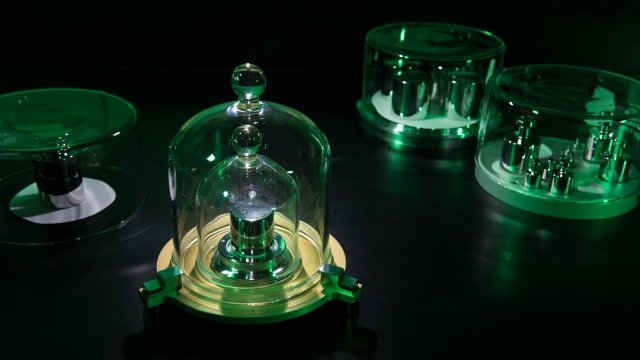Scientists decided Friday that since 1889, they've been doing the kilogram all wrong.
All this time, the unit measuring mass has been defined by an artifact. It's a platinum-iridium alloy cylinder with the mass of one liter of water at its densest. Which, you guessed it, weighs a kilogram.
That cylinder's mass has changed ever so slightly over time. But that's been enough to get scientists pushing for a change. And Friday, delegates from 60 nations voted unanimously at the General Conference of Weights and Measures in France to try something more accurate.
That difference is a constant. Namely, the Planck constant. It's a never-changing number relied upon in many quantum physics formulas. And that's the kind of reliability these scientists are looking to put behind the kilogram.
The kilogram will still weigh 2.2 pounds. And even though the change becomes official next May, most people won't be able to notice the difference.


